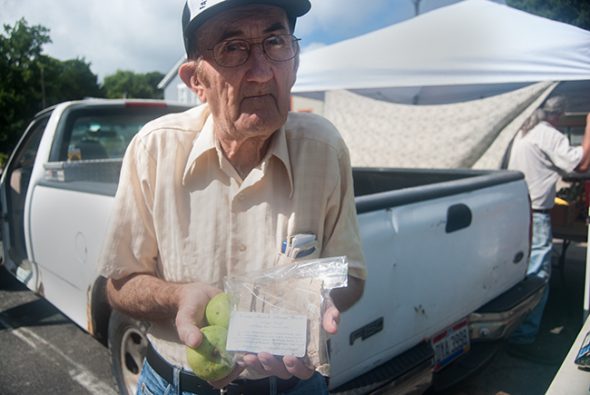
Dan Carter, representing Wyatt's Way, holds up biscuits and fruit at the market. (All photos by Aaron Zaremsky)
The Hunger Games – YS Farmers Market
- Published: August 25, 2016
What binds a community such as Yellow Springs together? What is the blood that runs in the town’s veins? How can we, as human beings, interact with one another in a meaningful way? I believe the answer has to do with the way we grow, distribute, and share our food, our life force.
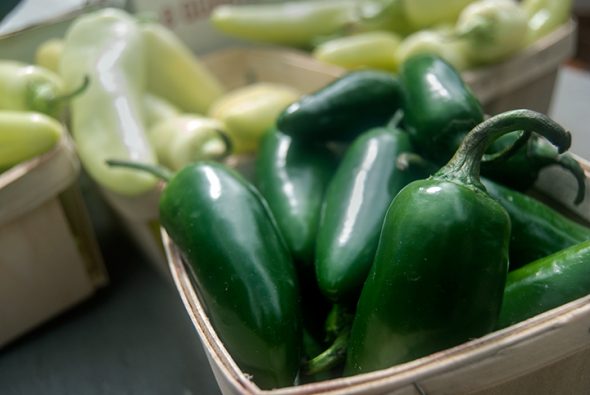
Jalapenos glisten in the market sun.
The most basic of human needs is to eat and drink. Our many disciplines, languages, and technologies can all be considered ancillary to this necessity. Our societies and civilizations throughout millennia have all been shaped by how we till our soil, plant our squash, and share the fruits of our labors with one another. Sedentary agriculture was, after all, the birth of what we now consider civilization itself, and each revolutionary adjustment in how we farm drastically changes things forever.
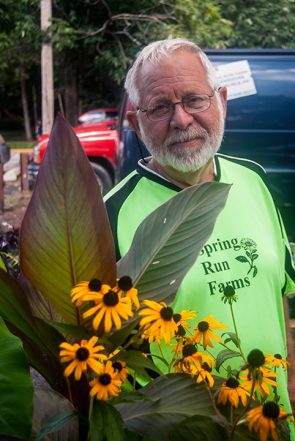
Paul Snyder of Spring Run Farms poses behind the leaves of a Canna plant.
Small towns are no different. The Farmers Market has been part of Yellow Springs for nigh on decades, hosting farmers from all around the area. It boasts diversity, quality, and professionalism in its participants. Some of the local agriculturalists have been at it for as long as the market has existed, with years and years of experience either in school or in the field. Paul Snyder, of Spring Run Farms has been a practicing horticulturalist for decades, and has also worked at the Ohio State Greenhouse. His flowers bloom with shimmering energy as I stroll up to his booth to great him. He is a proud parent and lets me know what each and every plant is.
The market is currently split between two parking lots. One behind the Corner Cone and one behind Kings Yard. Wyatt, the owner of Wyatt’s Way, expresses his desire to see the market as a more cohesive thing, and maybe have everyone in the same place. He tells me that the market is currently in a state of flux and is worried about its future. Some farmers come seasonally when certain items are available, yet there is a steady body of producers from all over that contribute.
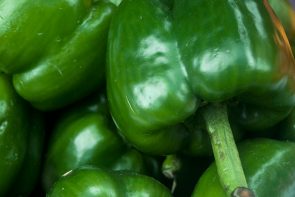
Edward Weston-esque peppers on display at the market.
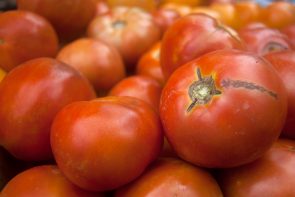
Jackson’s Farm produces ripe, red tomatoes.
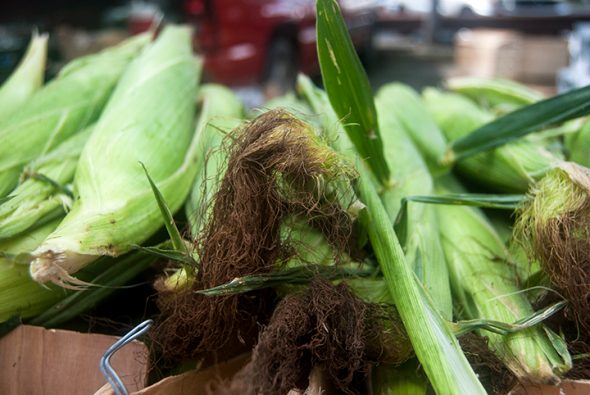
Tufts of sweet corn poke out from the Jacksons Farm stand.
As economies of scale go, the market is local and small. It’s no Whole Foods, and not chugging out a tremendous surplus to be shipped off somewhere; but that is kind of the point. You need to make do with what is available to you in the vicinity and pull from there. Shipping and trading is draining to the economy in the long run and can potentially throw an ecosystem into disarray if those involved don’t know what they are bringing into the environment. It should be a secondary resort to what can be freely accessed around you.
There is also the community aspect. Communities thrive on interaction and trust (especially trust) and what better way to practice these than with the exchange of food? There is also some legitimate studies that indicate farmers markets can improve the emotional health of community members that participate in the exchange. It seems to be a win win situation.
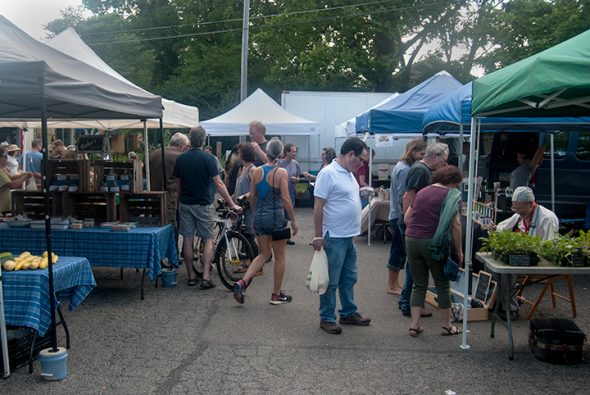
The Farmers Market improves the health and well being of the village.
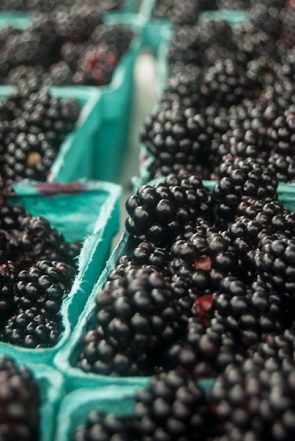
Finely textured berries are freshly picked and ready to eat.
In closing, I would like to see more participation in this agricultural experiment. I’m hoping this post will at least raise the market’s importance in my readers’ consciousness and encourage them to participate in the exchange. They might feel closer to the community by doing it (Most of the farmers I talked to reported a positive feeling from giving to the community.) Food is important, and something many of us take for granted. Even just a single visit to the market might put things in perspective and illuminate what I have said here.
Here’s to many more years of local food in the village and conscientious purchasing. May we uphold the ancient tradition of growing, harvesting, and distributing what the Earth provides to nourish our minds and bodies.
The Yellow Springs News encourages respectful discussion of this article.
You must login to post a comment.
Don't have a login? Register for a free YSNews.com account.



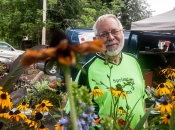
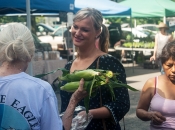
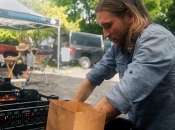







No comments yet for this article.